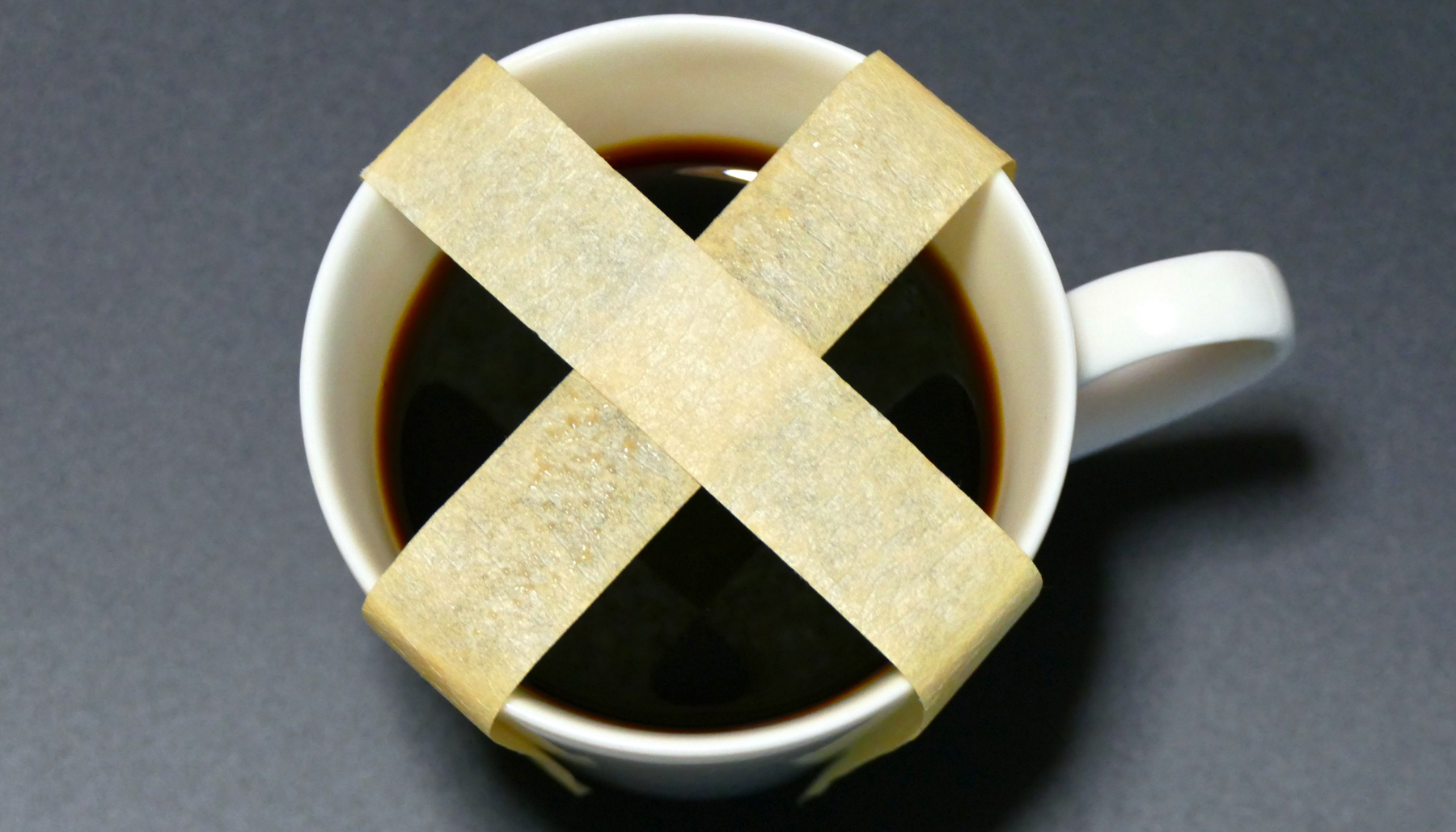Pumpkin spice season is right around the corner, so giving up coffee may be the last thing on your mind. Technically, a decaf pumpkin spice latte will scratch that flavor itch the same way that a full-caff latte does. But even if the flavor is the same, why would you want to give up coffee?
Simply put, there are health benefits to saying goodbye to your java, especially if you drink four or more cups a day. The more coffee you drink, the more health issues you’ll experience – and the harder (and more important) it is to cut back on your caffeine consumption.
Even if you’re a moderate coffee drinker, giving up your morning cup of joe could lead to health benefits. Check out why you should give it up, how to quit coffee, and what you should do instead.
Why You Should Give Up Coffee
The main reason to give up coffee is to stop caffeine’s effects on your body. Incidentally, your bank account will probably thank you, too. But unless you have certain health conditions, you probably don’t need to give up coffee. And there are even some benefits of drinking it.
However, if you think that coffee is affecting your health (especially if you drink a lot), you might want to say goodbye to java. It could be time to cut back if you notice any side effects after your second, third, fourth, or fifth mug. If you do, there are plenty of benefits for your body (and your mind!).
The Physical Effects
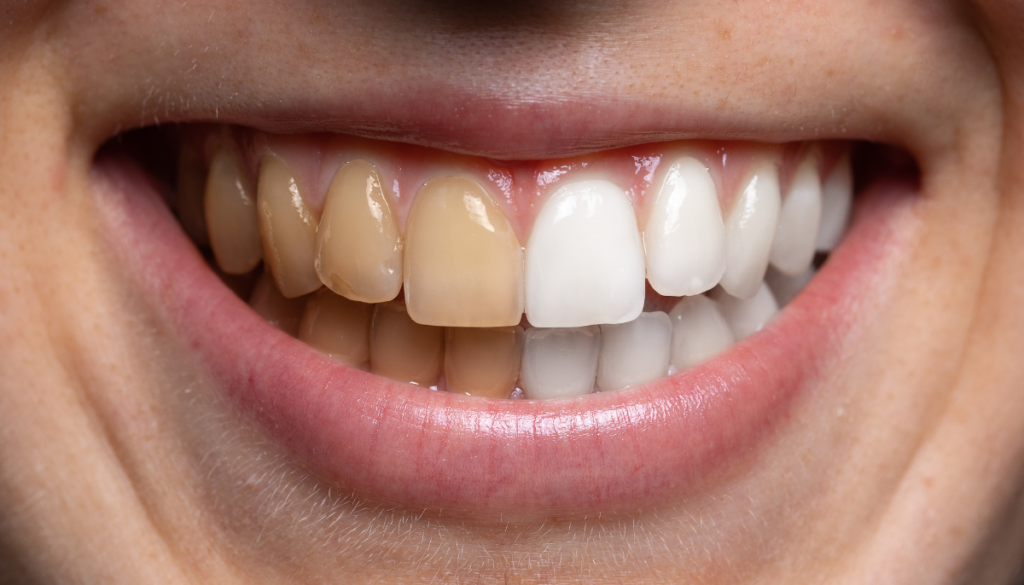
Caffeine has many physical effects on the body. It works as both a laxative, loosening your bowels, and a diuretic, increasing your need to urinate.
Coffee can increase the amount of acid in your stomach, leading to heartburn or an upset stomach. Caffeine may also interfere with your body’s absorption of healthy minerals like iron, calcium, and B vitamins.
It may be delicious, but coffee’s physical effects are serious. Caffeine increases your blood pressure, which can spell trouble for those who already have high blood pressure. Women, in particular, can benefit from giving up caffeine. One 2012 study found that coffee consumption resulted in increased estrogen levels for Asian and black women.
One of the lesser-known physical side effects of consuming caffeine is that it can inhibit your collagen production, meaning it’s harder for your body to produce this important tissue. So, drinking caffeine can age you faster because it can interfere with your body’s ability to produce collagen.
Of course, another side effect of drinking coffee is that it can stain your teeth. It can also affect your sleep, making falling and staying asleep harder.
The Mental Effects
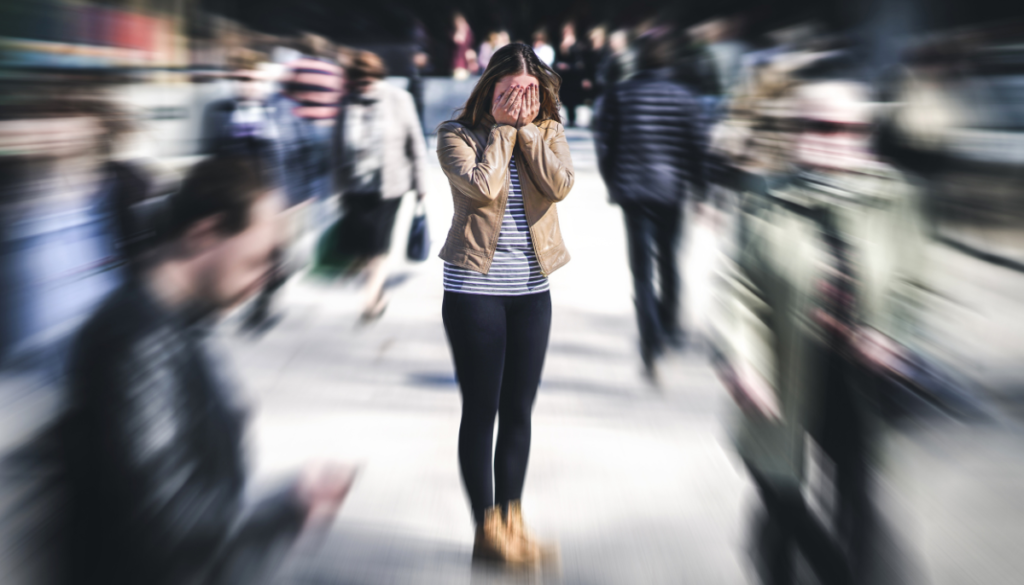
Giving up caffeine can have a positive effect on your mental health, too. Caffeine can affect your body’s brain chemistry. The science is clear: caffeine is addictive, and if you miss your morning cup of coffee, it could affect your energy levels and mood. By not drinking caffeine, you can avoid this effect entirely and count on more stable moods.
If you are already prone to anxiety, caffeine can make it worse. It stimulates your nervous system and activates the “fight or flight” portion of your brain. Even though the energy from the caffeine can be helpful, it can be too much for someone who struggles with anxiety. Choosing not to drink coffee can make you feel calmer.
Caffeine Sensitivity
Like many other substances, from salt to sugar, caffeine affects each person differently. Some people are more affected by caffeine than others because they are sensitive to caffeine.
Caffeine sensitivity can be minor, such as making it more difficult to fall asleep at night. Or, it can be as major as causing heart palpitations soon after taking a sip of coffee.
You should talk to your doctor if you think you have a caffeine sensitivity. It also may be a good idea to start decreasing your caffeine consumption now and see if the side effects you notice go away.
Too Much Caffeine Leads to Health Issues
For most people, a low to moderate level of caffeine consumption won’t hurt their health. But consuming too much caffeine can create major health issues for anyone.
According to MedlinePlus, too much caffeine can lead to dehydration, fast heart rate, dizziness, headaches, insomnia, restlessness, and shakiness. These physical symptoms can seriously affect your quality of life and your happiness.
It’s also important to note that caffeine can have a serious impact on certain populations, such as people with diabetes, people with certain gastrointestinal issues, the elderly, and children.
Read More: Coffee Lover Approved: The Best Decaf Coffees to Try
How To Quit Coffee
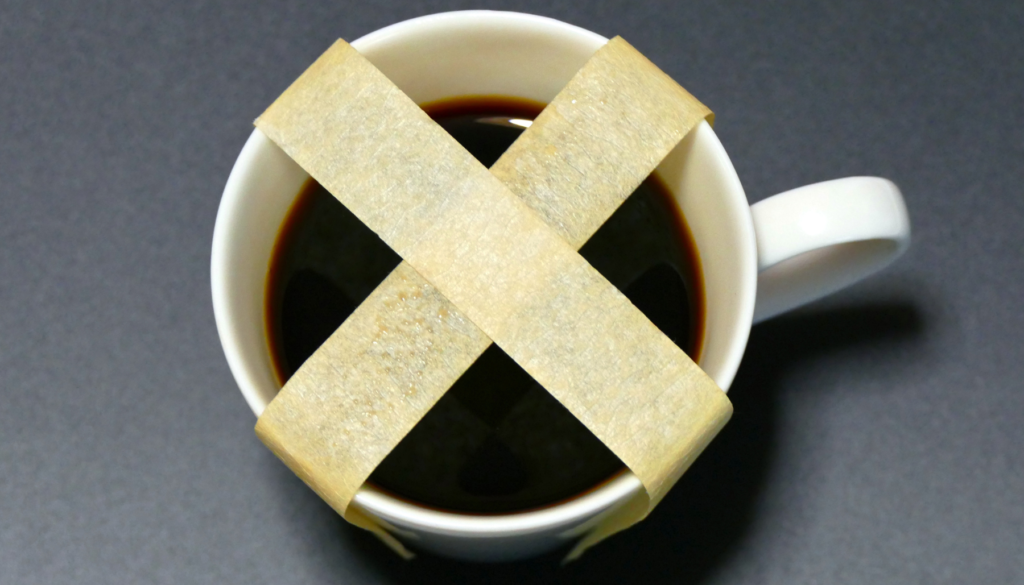
Maybe you’ve realized that your coffee habit is a little out of control. Or maybe you’re looking to save money and quit stopping by Starbucks on your morning commute. Perhaps you’re concerned about premature aging, and you want to test out a no-caffeine diet and see how it affects your skin.
No matter your reason, it’s important to quit coffee correctly – especially if you’ve been drinking it every morning or throughout the day for years. These tips will help you leave your java habit behind.
Don’t Quit Cold Turkey
Quitting any addictive substance cold turkey is bound to cause serious withdrawal problems. Don’t make the mistake of giving up your coffee all at once.
While quitting cold turkey might work for some people, most people will experience caffeine withdrawal symptoms such as headaches, irritability, muscle pain, tiredness, nausea, and difficulty concentrating.
Replace One Cup of Coffee With Water
Start your no-coffee journey by replacing one cup of joe with water. Or, if there’s another healthy drink you enjoy, like caffeine-free tea or a low-sugar juice, you can substitute your cup of coffee with that instead.
Water is the best option because it is extremely beneficial for your health. If you drink multiple cups of coffee in a morning, water will help flush out the caffeine.
Swap One Cup of Caff for Decaf
Losing out on caffeine is already going to affect your energy levels. You don’t have to miss out on the act of pouring a cup of coffee or on the delicious flavor, too.
Swap one cup of caffeinated coffee for a cup of decaf a day. The flavor is there, and drinking coffee is still part of your morning routine – without the side effects of caffeine.
Keep the Swap Going
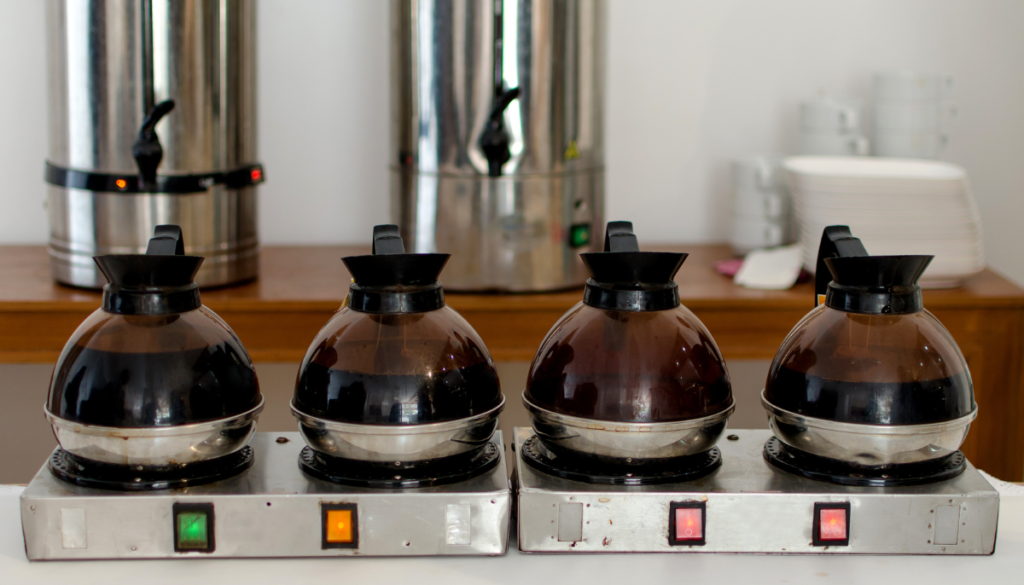
Do you normally drink three or four cups of coffee a day (or more)? If so, you need to keep the swap going. Start by replacing one cup of regular coffee with decaf for a week. At the beginning of week two, replace two cups with decaf. Repeat the process until you’re only drinking decaf.
Remember, don’t try to quit cold turkey or suddenly cut your caffeine intake to a small portion of what it used to be. Gradually reduce your coffee intake, so you don’t experience withdrawal symptoms.
What You Should Drink (and Do) Instead
You might find that something is missing in your life once you quit having your morning cup of joe. But you can still have the energy boost you used to get from your cup of coffee without having the caffeine. Take a look at these alternative and healthier ways to boost your energy.
Try Some Citrus
Citrus smells and flavors are light and refreshing. Try eating a citrus fruit like an orange instead of pouring yourself another mug of coffee. You can also try lighting a citrus candle or using a citrus lotion in the afternoon to see if the invigorating smell energizes you. Citrus essential oils are another option. Use them in a diffuser to make your office or your home smell refreshing.
Do Some Stretching
Get your body up and moving with some stretches. Stand up tall and then reach for your toes. By getting your blood moving, you’re giving yourself a natural energy boost without relying on caffeine. If you’re not confident stretching on your own, look up a YouTube video on stretching and follow along. You can also use different yoga flows, too.
Eat a Snack With Some Crunch

According to Oprah Daily, “Crunchy foods are ideal afternoon snacks for helping you stay more alert.” Instead of trying to increase your energy levels with caffeine, consider eating carrots, an apple, or yogurt with crunchy granola instead.
Step Outside
Step outside and expose your body to the benefits of sunshine. Bright light will positively affect your health and give you that energy boost you’d normally get from coffee. Stepping outside within the first one or two hours after you wake up can help regulate your circadian rhythm and give you the energy you need.
Quitting coffee may sound impossible. For some people, giving up java is medically necessary to reduce their caffeine intake. For others, it’s a simple way to improve their health without going to the doctor. Give the caffeine-free lifestyle a shot and see if it works for you!
Read More: Starbucks Summer Recommendations For People Who Don’t Really Like Coffee

